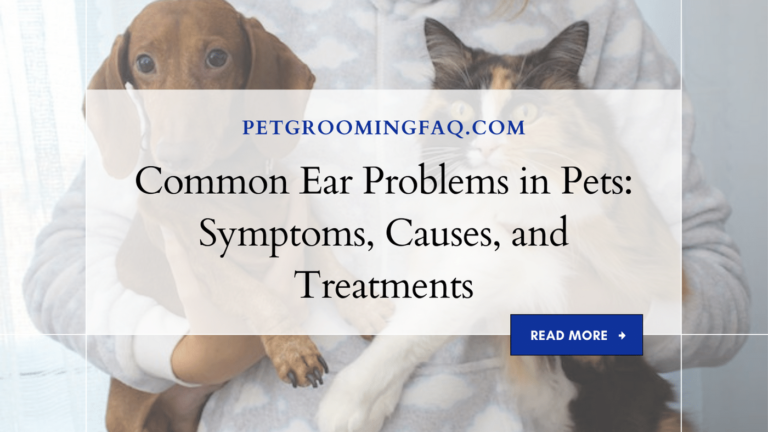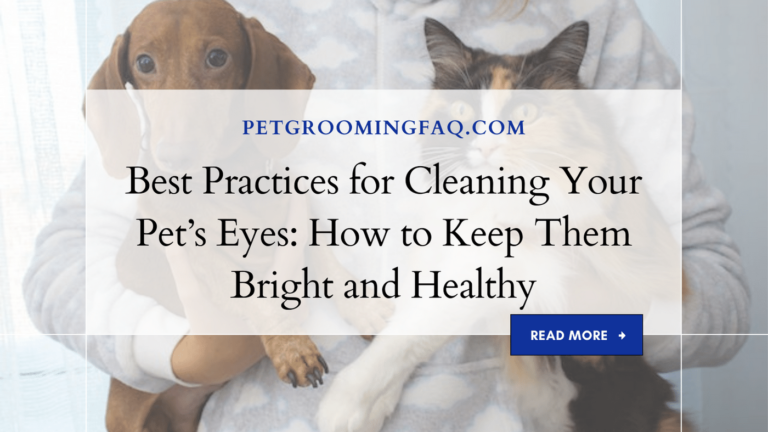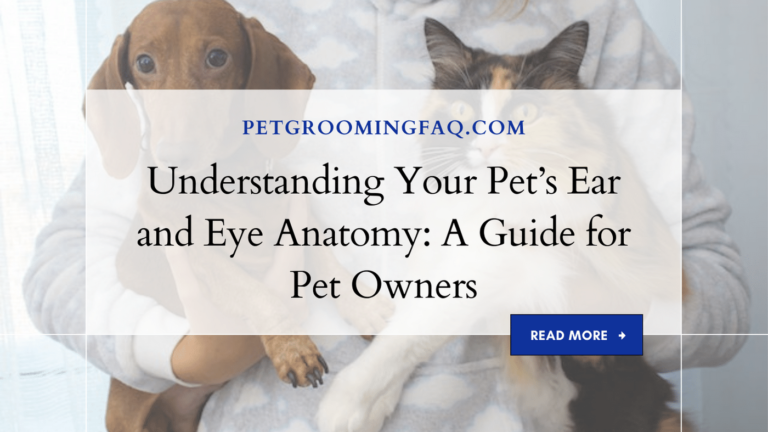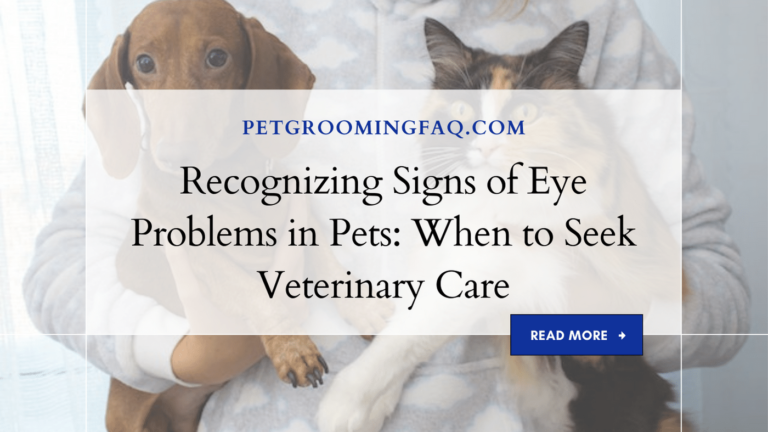The Connection between Diet and Ear and Eye Health in Pets
As pet parents, we all want our furry friends to be healthy and happy. We invest in premium food, quality toys, and regular vet check-ups to keep them in top shape. But did you know that what they eat can also affect their ear and eye health?
That’s right – the connection between diet and these important senses is real, and it could make all the difference in your pet’s life. In this blog post, we’ll explore how nutrition plays a crucial role in keeping your pets’ ears and eyes healthy, so read on to learn more!
What is the Connection between Diet and Ear and Eye Health in Pets?
There is a strong connection between diet and ear and eye health in pets, according to Gary McGrady, D.V.M., Ph.D., a professor emeritus of animal science at Cornell University. “A pet’s diet can have a dramatic impact on their overall health, including their ears and eyes,” Dr. McGrady said. Some of the most common problems that can be linked to poor diets include ear infections and eye inflammation.
Ear infections are a leading cause of sickness in dogs and cats, and often lead to repeat visits to the veterinarian. While there are many potential causes of an infection in an animal’s ear canal, kibble is one of the main culprits.
Kibble is typically high in moisture content which leads to bacteria growth inside the animal’s ear canal, causing an infection. Similarly, dry food can also lead to bacterial growth in an animal’s ears which can cause an infection as well [1].
Eye inflammation is another common issue that can be linked to a pet’s diet. “When your pet eats things like grains or processed foods that contain additives or chemicals that irritate their eyes, it sets up oxidative stress in their eyes which causes them to develop cataracts or other types of eye disease [2],”
Dr. McGrady said. When selecting your pet’s diet, make sure to look for foods that are low in sugar and sodium as these two factors are frequently associated with eye problems. Additionally, make sure to include plenty of fresh air and exercise in your pet’s day-to-day routine to ensure a healthy diet and strong vision.
Types of Diets That Affect Ear and Eye Health
There are a variety of diets that can affect ear and eye health in pets. Diets high in grains, sugar, and processed foods can cause upset stomachs and diarrhea which can lead to the development of digestive problems including liver disease and kidney disease, both of which can affect ear and eye health.
In addition, some diets high in sodium can be harmful for the eyes because it can increase the levels of fluid in the eyes and cause them to swell. Ingesting too much salt also leads to elevated blood pressure, which can damage arteries throughout the body including those that supplyblood to the eyes.
Dietary modifications may be necessary for certain types of animals such as dogs and cats who are obligate carnivores or herbivores, respectively. Obeying a nutritious diet is critical for maintaining good ear and eye health in these animals because their specific dietary needs vary somewhat from human beings.
The Connection between Diet and Eye Health in Cats
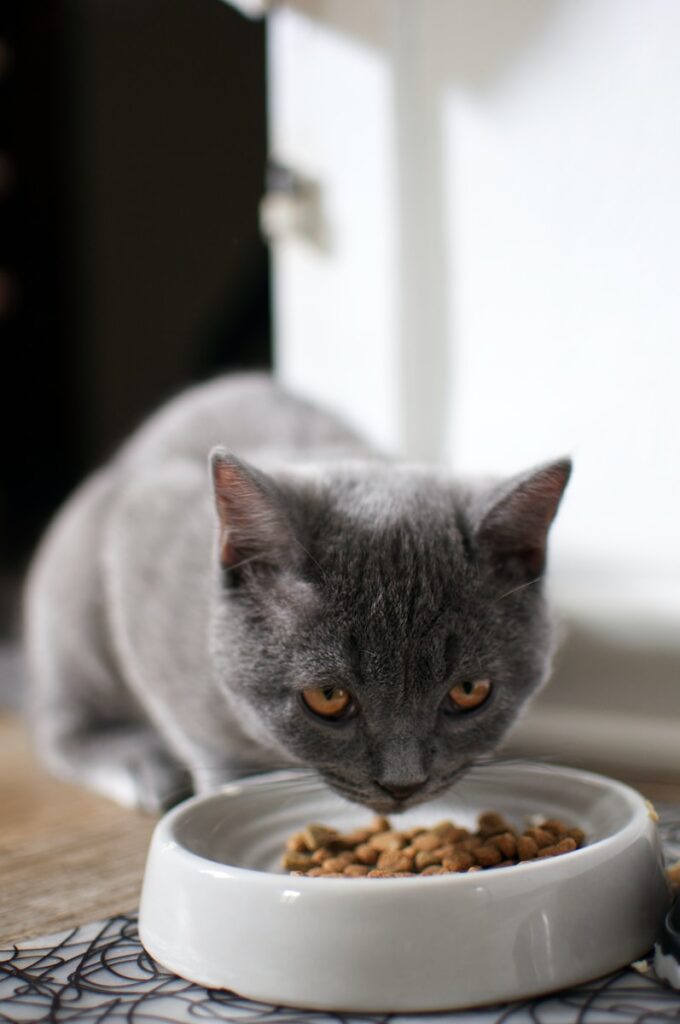
Diet can be a major factor in eye and ear health in pets. The American Veterinary Medical Association recommends that pet owners feed their dogs and cats a diet that is high in protein, low in carbohydrates, and contains adequate levels of vitamins A and C. This type of diet is essential for maintaining good eye and ear health.
One important aspect of a healthy diet is the level of Omega-3 fatty acids. Pets need a balanced amount of Omega-6 and omega-3 fatty acids to keep their eyes and ears healthy. Too much Omega-6 fatty acid can lead to inflammation, while insufficient levels of Omega-3 can cause dryness, itchiness, and even vision problems.
If your cat or dog is eating a healthy diet, his or her eyes and ears should be healthy as well. However, if you notice any changes in your pet’s eyes or ears – such as discharge, prominence of the eyeballs or hearing loss – speak with your veterinarian to determine if there may be a connection between the pet’s diet and health issues.
The Connection between Diet and Eye Health in Dogs
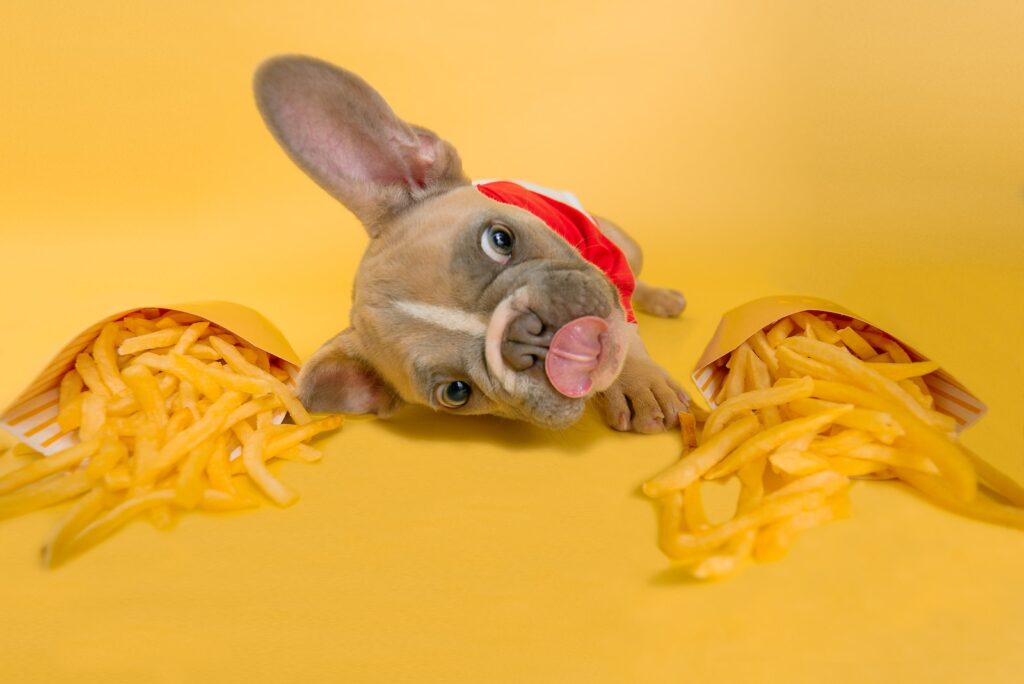
Dietary changes often result in changes in eye and ear health in dogs. Specifically, a 2014 study found that switching to a high-quality diet was associated with improved overall eye health in Beagles. The study’s lead author, Dr. Andrew Weil of the University of Arizona, commented on their findings, stating that “the benefits of good nutrition go beyond preventing diseases and keeping our pets healthy.”
In another study published earlier this year, researchers from Kyoto University investigated the connection between canine diet and eye health by examining the diets of 680 cavalier King Charles Spaniels over a 10-year period. The results showed that those dogs containing higher levels of linoleic acid – an omega-6 fatty acid – had healthier eyes than those with lower levels of linoleic acid. The beneficial effects of a high linoleic acid diet were also seen when comparing the dog eyes of different breeds; for instance, German Shepherds had better vision than Cocker Spaniels even though they ate similar amounts of food.
While it is still unclear exactly why a high linoleic acid diet is beneficial to pet eyes, one theory suggests that it can help reduce the risk of age-related macular degeneration (AMD), which is a leading cause of blindness in humans over the age of 50. Interestingly, pumpkin seeds are one food item that naturally contains high levels of linoleic acid; therefore, many pet owners may want to consider including them as part of their dog’s diet.
The Connection between Diet and Eye Health in Ferrets
Ferrets are known for their delicate eyes and ears, so it’s important to keep their diet as healthy as possible. The type of food they eat can affect their eye health and ear health, both of which are important for ferrets. In this article, we’ll look at the connection between diet and eye health in ferrets and what you can do to make sure they have a healthy eye and ear health.
What Is in a Ferret’s Diet?
Ferrets are obligate carnivores, meaning that their bodies need animal-based nutrients in order to survive. Their diet consists mostly of meat, with some plant matter mixed in. This is different from cats, who are obligate carnivores but also consume a small amount of meat.
Because ferrets need animal-based nutrients, their diet should include plenty of protein (especially if they’re feed dry food), essential vitamins and minerals (including vitamin A), omega-3 fatty acids, along with fiber. Some ferret foods include ferret chow (an all-natural kibble) or perhaps Weruva natural wet food coupons bulk packs which has many of these features listed above.[1]
Ferret Eye Health
Since ferrets’ eyes are so sensitive to environmental pollutants such as light and water pollutants,[2] their diet is an important factor when it comes to eye health. Feeding your ferret a high-quality diet will ensure that their eyes stay strong and healthy. In addition to the nutrients in their food, ferrets need a good environment in which to live. Make sure their cage is big enough and has plenty of toys and playtime to keep them active and engaging. If their environment is healthy, their eyes will be as well!
Ferret Ear Health
Ear health is also important for ferrets, since they are susceptible to ear mites. These tiny creatures can cause your ferret serious ear problems, including infections, inflammation, and even Permanent Eustachian Tube Insufficiency (PITI),[3] which can lead to Chronic Otitis Media (C-O-M). A high-quality diet is one way you can help prevent these issues, as well as ear problems in other animals. Ferrets should have access to a dry towel to clean their ears if they get wet outside of their water dish, and should be fed a diet that includes hay or straw for extra fiber.
Conclusion
As we continue to learn about the connection between diet and ear and eye health in pets, we are starting to see just how important a role healthy food choices play. As pet owners, it is important that we take the time to educate ourselves on what our furry friends are eating and make sure that their diets closely match their natural digestive systems. By doing this, we can help ensure that they stay healthy both mentally and physically.


